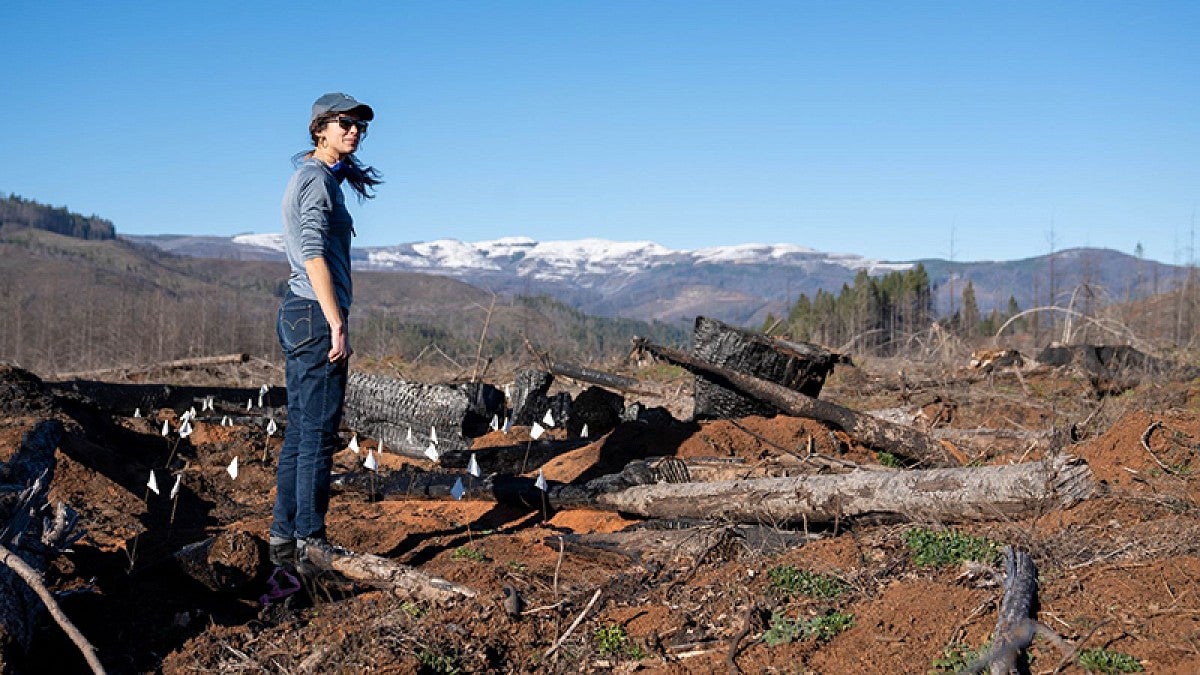For some people, the ridges above the McKenzie River Valley that burned in the Holiday Farm fire of 2020 might appear to be just a blackened wasteland.
But Lauren Ponisio, an assistant biology professor, sees potential: With the sowing of native plant seeds, she said, the land could become a paradise for the western bumblebee, whose numbers have crashed over the last quarter century.
The spring Oregon Quarterly, available now, features a pilot project in which Ponisio is working with students and alumni to replant fire-ravaged land with native plant species to increase habitat for wild bees and other pollinators.
“I like to hope change is coming,” Ponisio said. “Imagine driving down the road and you see meadows of wildflowers with all these happy bees. There would be so much bee habitat!”
While Ponisio is coming to the aid of the busy bee, researchers in the Department of Computer and Information Science are helping the rest of us — in the digital world.
It’s easy to take the reliability and safety of the internet for granted. But the online world is subject to numerous threats — internally, from cybercriminals and other hackers, and externally, from earthquakes and other natural disasters that can disrupt service. Computer science faculty members are battling threats to internet traffic, cryptocurrency, social media networks, infrastructure security and more.
The spring issue of the university magazine features Bala Ambati, a research professor in the Phil and Penny Knight Campus for Accelerating Scientific Impact, who is developing a gene therapy to treat an eye disease that affects roughly one in 2,000 people globally. It also spotlights Hannah Thomas, a new assistant professor of dance who is launching a bachelor of fine arts in dance degree program.
Also: the return of the UO Hip-Hop Jam; Anna Mueller, journalism student and mock trial specialist; outstanding alumni Charity Woodrum, a 2018 physics graduate; Skye Fitzgerald, who earned an MFA in speech: theater arts in 1997; Folake Owodunni, a 2008 biology grad, and Steve Bence, who earned a math degree in 1975 and an MBA in 1991; and UO President Michael H. Schill on the launch of The Ballmer Institute for Children’s Behavioral Health.
Capping off the issue, Tom Bode, who graduated from the Clark Honors College in 2009 with an economics degree, recounts a quest undertaken with his dog, Luna, to find Nefertiti, a giant Douglas fir hidden in an old-growth forest east of Albany.


